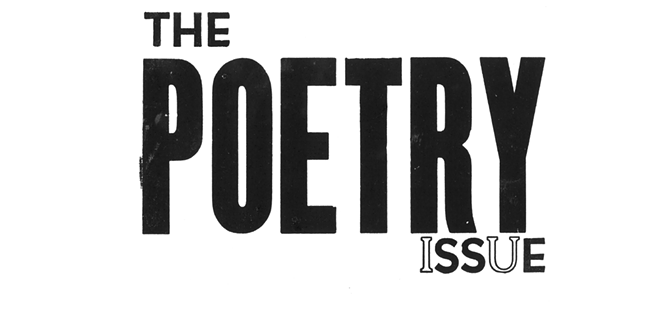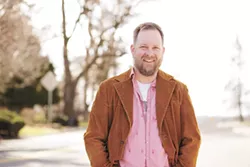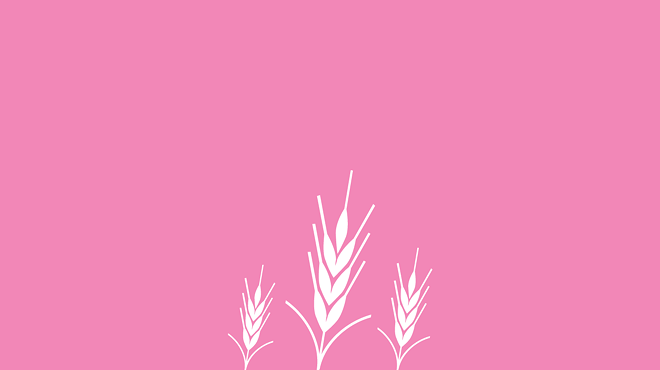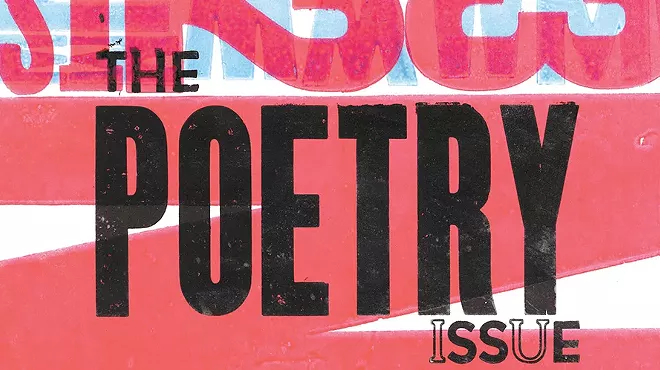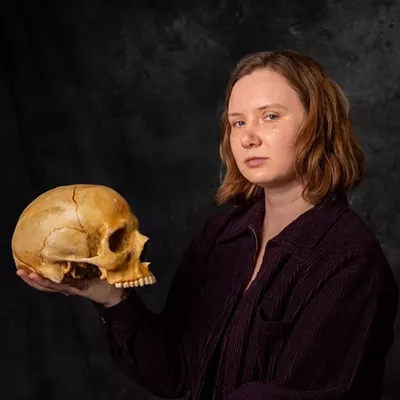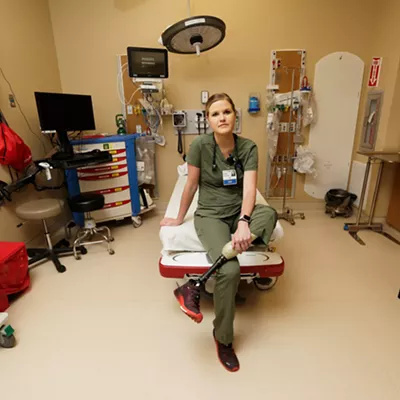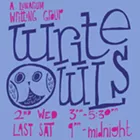In early January, I got an email from Inlander Managing Editor Dan Nailen. Would I be interested in editing another poetry issue, to come out sometime in the spring? I jumped at the chance, having really enjoyed the last go-round, in 2016. We met on Jan. 29, Dan had some ideas for potential themes, and we narrowed it down to Spring & Renewal. It seemed apropos, given the timing of the issue, due out April 2. A couple weeks later, the call went live, and poems started to roll in. The submission deadline was right around the time when the first cases of COVID-19 were confirmed in a Kirkland care facility.
So we are publishing these poems into a much different world than the one the issue was conceived in. If we put out the call today, I suspect we'd get significantly different poems. Poetry, after all, may respond to the current moment (whatever it is) faster than other creative writing disciplines, with its emphasis on concision, compression and tension. It's fair to say our tensions are different today than they were on Jan. 29.
But as many of us perhaps noticed as we settled into our various forms of social distancing and isolation over the past couple weeks (my prayers are with you, parents of small children), spring appears to be happening regardless of the news. In many ways, this has been among my chief comforts. The crocuses have come up. The tulips, possibly interrupted by our freak snowstorm, are still on their way. Daffodils and hyacinth can't be far behind. There are buds on the roses. These are hopeful signs, as is the warming weather, even as the news continues to be perilous.
I think these poems, too, are hopeful, even if written not in direct response to our current reality. That is one of poetry's great powers: to speak into whatever moment it is found in. As Aileen Keown Vaux says in "A Fine Mist," "Some atmospheres are ripe with foreboding." In putting the poems together for print, I've enjoyed how they begin to work together. Seemingly in response to Vaux, Damien Uriah writes, "Every tendril in wind creaks / for what will come: the flower, the verdant bud." "Then the breeze and petals / candent in earthshine / opened wide," Adele Lewis writes. In "Tributary," Andy Lang anticipates May midge and caddis hatches, "the new drone of young summer grasshoppers," and Nance Van Winckel imagines, in the passion of young lovers, "this cargo more precious than we've ever / been, or will be, as we land upon our land." All told, I feel like these poems open up space to find, as Chris Maccini does in "A Spring Afternoon," "a quiet place to sit and rest. To inhale..."
There are many other beautiful pieces than the ones I mentioned here. And as in any such venture, plenty more worthy poems I did not select. The Inlander has once again opened up space for a batch of online poems which I simply could not let go of. Even that doesn't truly capture the breadth of quality that was submitted. A world in which poetry is being written, shared, read out loud is a world in which the spring will always come. My respect and admiration go out to everyone who sent me poems, and I thank you sincerely for the opportunity to read them. You kept me a little more calm in a spiraling world. ♦

